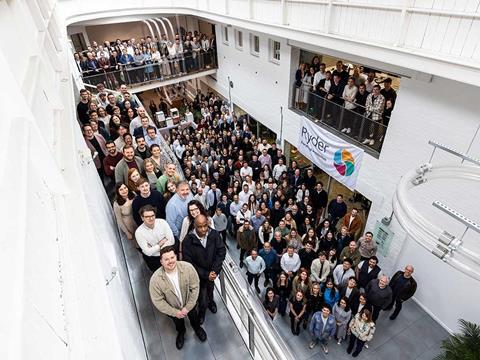
Ryder Architecture, an international design practice headquartered in Newcastle, has established an employee ownership trust (EOT).
Following its transition to the EOT, Mark Thompson, managing director at Ryder, and the current leadership team will continue to drive strategy and business decisions.
A small board of trustees, including Ryder employees and independent advisors, has been established to represent the EOT on behalf of the workforce. This includes the chair of Ryder’s people board Ryder360.
Ryder was previously owned by 13 shareholders who were partners at the practice. Apart from one employee who is retiring, the former partners will remain part of the leadership team and, alongside other senior staff, will be known as principals. Several other employees based in London, Bristol and Newcastle have been promoted to the role of principal as part of the transition.
Financial and legal advice for the EOT transition was provided by UNW and Womble Bond Dickinson.
Thompson said: “This is an exciting and positive step in Ryder’s journey. By becoming an EOT, we are securing the future of the organisation and importantly maintaining all the elements that have made us so successful to date, our strong culture and identity, our reputation for excellence, and an unwavering commitment to develop, retain and reward our people who are at the very heart of our business.”
Fran Harrison, chair of the Ryder360 board and a trustee on the EOT board, added: “All of us now have an even greater stake in the success of the organisation, which is both motivating and rewarding. We see excellent levels of engagement across Ryder, but this change in ownership will help to foster an even stronger culture of shared success and collaboration.”
David McMahon, principal in London and a trustee on the EOT Board, said: “The transition to an EOT represents the next steps in the evolution of Ryder, and we will all benefit from its success. This move underpins our commitment to our biggest asset, our people, while creating the optimum environment for our future success. This approach will provide our clients with the continued expertise Ryder offers and reinforce our commitment to design and the communities within which we work.”











